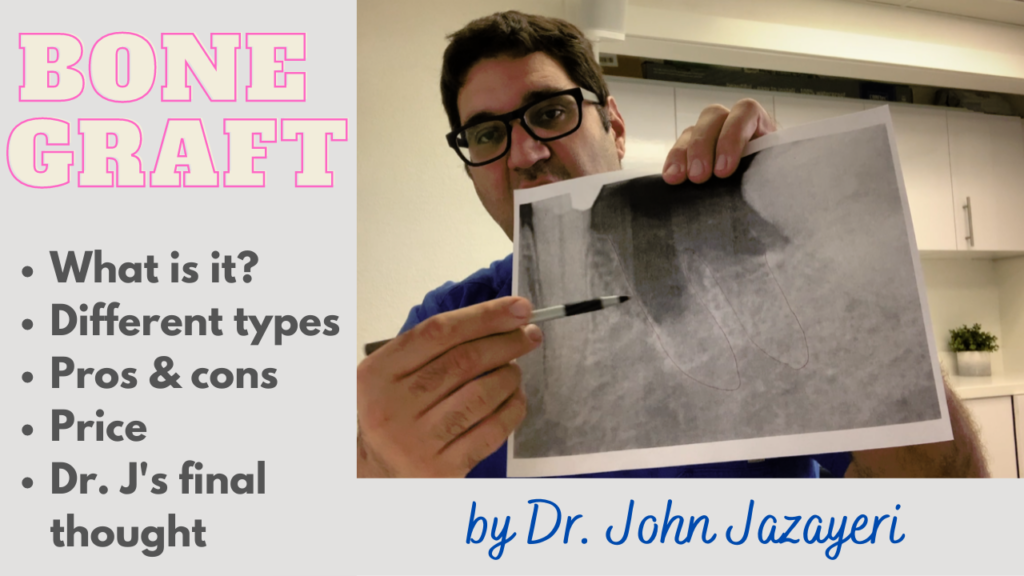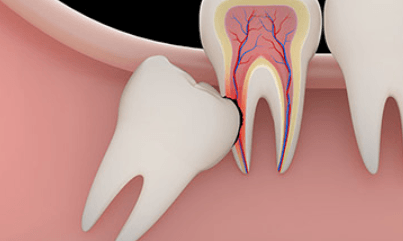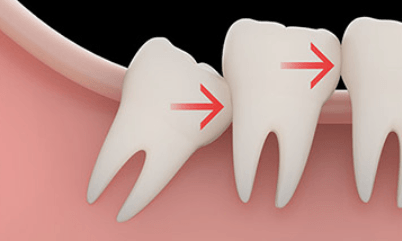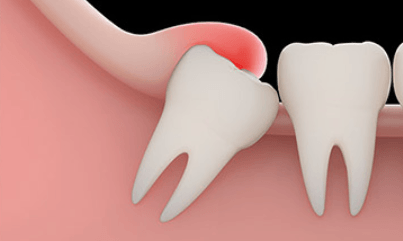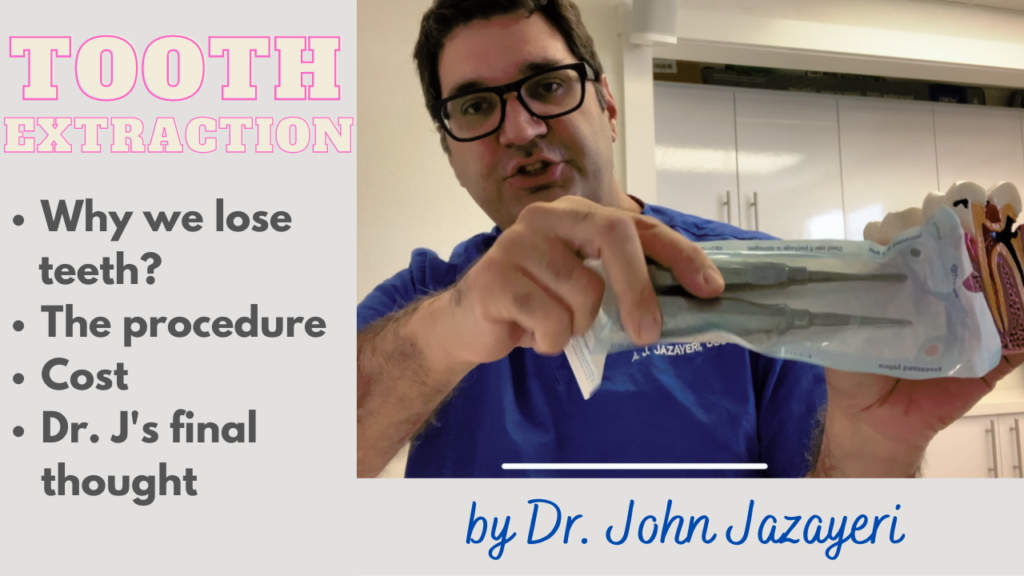
Tooth Extraction: What You Need to Know Before You Pull Your Tooth (YouTube)
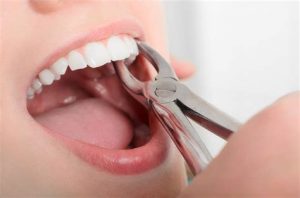
You may have to remove your tooth due to a bad infection, crowding issues, or impaction
We're all born with 28 permanent adult teeth, 32 if you count the wisdom teeth, in our mouths. However, not all of us get to keep all these adult teeth for one reason or another. There are many different reasons why we lose our teeth. Here are a few:
Orthodontic-Related Extractions
It's not uncommon to have to remove a few permanent teeth before starting braces treatment. Your orthodontist will advise you to remove several adult teeth to lessen the crowding and create room for moving your remaining teeth. By removing these "extra" teeth, your orthodontist can offer you a straighter smile, improve your bite relationship, and reduce the likelihood of orthodontic relapse over time. Listen to your orthodontist and remove these extra teeth.
Impacted Wisdom Teeth
Wisdom teeth, or third molars, are the teeth that are located all the way in the back of the mouth. If you have wisdom teeth, and not all of us do, then there's a good chance that you may have to remove them. Most wisdom teeth are removed because there isn't enough room for them to properly erupt in the mouth. Impacted wisdom teeth cause pain, swelling, and even teeth crowding. Removing your wisdom teeth rids you of the pain and solves these issues.
Badly Damaged Teeth
Severely broken teeth and infected teeth have to be removed from your mouth as well. Leaving broken teeth fragments in the mouth is never a good idea. These teeth pieces almost always become infected. The infection slowly spreads from the tooth to the jawbone. From there, the infection travels through your bloodstream or sinuses to the rest of the body. Ultimately, the tooth infection compromises your entire oral well-being. If a bad tooth can't be saved, you should have it removed to prevent further complications. Keep in mind that not all dental infections are painful either. Occasionally, you may not even be aware that there is an infection inside your mouth. This is why it's so important to see a dentist regularly to make sure there is no hidden infection inside your mouth.
End-Stage Gum Disease
The number one cause of tooth loss among the adult population is gum disease or periodontitis. Infected gums cause your teeth to lose their supporting bone structure and become loose. If left untreated, your teeth start to move and become infected. Unfortunately, it's not uncommon for patients with severe gum disease to lose multiple teeth, sometimes even all of their teeth. Receiving a professional dental cleaning can make all the difference in the world. Don't wait too long and schedule your dental cleaning to rid yourself of gum disease. It could save your teeth!
What are wisdom teeth?
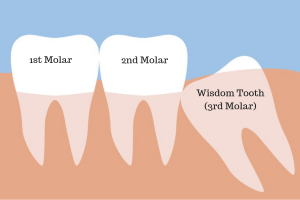
Impacted wisdom teeth can cause severe pain
Wisdom teeth, or 3rd molars, are those teeth located all the way in the back of your mouth. Some lucky individuals are born without any wisdom teeth and never have to worry about them. However, the majority of us have wisdom teeth in our mouths. One wisdom tooth in each corner of the mouth for a total of four. If you have wisdom teeth in your mouth, then you need to decide whether to keep them or remove them. Leaving problematic wisdom teeth in the mouth is never a good idea. They can cause severe pain and extreme discomfort when pushing their way out. The sooner you address problematic wisdom teeth, the less you will suffer. The ideal age for removing wisdom teeth is your late teens to early twenties. Removing wisdom teeth becomes more complicated with age as your jawbone stiffens and the body's recovery time slows down.
What are impacted wisdom teeth?
Impacted wisdom teeth are trapped under the jawbone. Some impacted wisdom teeth fail to erupt into their proper position due to a lack of sufficient space. Most impacted wisdom teeth must be removed. Otherwise, they cause severe pain, swelling, infection, and teeth crowding. Occasionally, they even cause dental cavities or infections on the adjacent teeth!
Should I have my wisdom teeth removed?
Not everyone has to remove their wisdom teeth. If you have enough room in your jaws to fully accommodate your wisdom teeth then you can keep them. However, most people don’t have enough space for wisdom teeth to grow. If this is the case, then you should consider removing your wisdom teeth. It ultimately comes down to whether or not your jaw is large enough for these spare teeth to fit in. Here are some complications you may face neglecting your wisdom teeth:
Pain & Discomfort
Wisdom teeth start to push their way out during the late teens or early twenties. They cause repeated episodes of severe pain, swelling, or even infection if there isn't enough room for them to properly erupt.
Teeth Crowding
As your wisdom teeth start to push their way out they cause other teeth to move as well. If there is enough room for these wisdom teeth then there is nothing to worry about. However, if you don't have enough room in your jaw then the wisdom teeth cause your other teeth to become crooked. Removing wisdom teeth early on in life prevents teeth crowding and keeps your teeth straight. This explains why most orthodontists recommend that you remove your wisdom teeth as soon as finishing braces treatment.
Cavities & Infections
When wisdom teeth begin to erupt, they continuously push on the neighboring teeth. If a wisdom tooth is sitting at a bad angle it creates a hole in the neighboring tooth. Eventually, this leads to a cavity on the adjacent 2nd molar. If left untreated, this second molar becomes infected. It is not unseen for patients who neglect their wisdom teeth to lose their second molar as a consequence.
Medical Problems
Impacted wisdom teeth can cause TMJ pain, headaches, and even sinus-related issues. Removing problematic third molars can relieve the pressure on your joints and sinuses to alleviate the symptoms you've been experiencing.
Do I need a bone graft after tooth extraction?
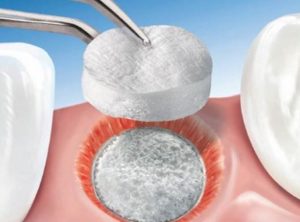
Bone graft helps your body heal better and preserves more of the tooth extraction socket
Once you remove a tooth, you are left with a huge empty socket. This extraction socket needs to fill up with bone tissue in order to heal properly. Placing a bone graft assists your body during this post-extraction healing process. Here are some benefits of placing a bone graft following tooth extraction:
More Predictable Healing
Adding bone graft after tooth extraction aids with the healing process. When a tooth is removed, you're left with a large hole in the mouth. Placing a bone graft creates a scaffold for better infiltration of blood cells. This causes the extraction socket to heal faster and better. The end result is expedited healing time, less post-operative discomfort, and better bone growth within the socket.
Reduced Post-op Complications
Placing a bone graft significantly reduces the chances of poor healing, known as a dry socket. A dry socket occurs whenever your body fails to rapidly deposit tissue into the tooth extraction site. Dry sockets are extremely painful. Worse, dry sockets typically take weeks before they resolve. Adding a bone graft aids your body to develop more bone particles to reduce the chances of developing a painful dry socket.
Improved Jawbone Preservation
Another major benefit of bone grafting is that you preserve your jawbone for future implant placement. Without adding a bone graft, your jawbone collapses more dramatically. This could cause problems if you are planning on placing a dental implant. As a result, you may have to perform an extensive bone augmentation procedure or settle for a bridge or denture instead.
Bone grafts are very popular because they are safe, simple, and relatively affordable. Dentists use a wide variety of synthetic and animal-derived graft materials to restore various bony defects. We highly recommended that you add a bone graft if you're planning on replacing a bad tooth with a dental implant in the near future.
